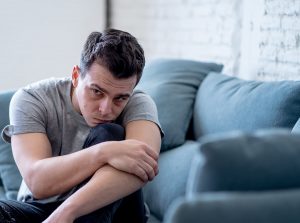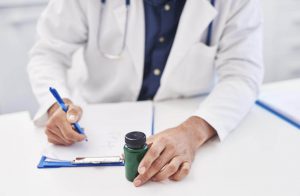Drug addiction has both physical and mental symptoms. In other words, drugs affect both your body as well as your mind. Both aspects need to be addressed for a successful recovery.
Most people view drug addiction as a purely mental issue because it often affects your behavior, attitude, and mood. But what’s often neglected is the fact that drug abuse also affects your body in many ways.
When you’re suffering from the physical effects of drugs, it will be quite difficult to deal with the effects on your mind. That’s why drug detox is important.
What is drug detox?
 Detox (short for detoxification) is the process of removing all traces of addictive substances from your body. This is done to help eliminate the physical manifestations of drug addiction.
Detox (short for detoxification) is the process of removing all traces of addictive substances from your body. This is done to help eliminate the physical manifestations of drug addiction.
The basic principle of drug detox is that a person with physical ailments cannot properly deal with any underlying mental health issues. With that in mind, rehab programs usually have detox as the first step. Once the physical effects of drugs are out of the way, you will be ready to tackle the mental health issues.
What physical effects does drug detox address?
 When you suffer from drug addiction, you have become so used to the presence of drugs inside your body. In fact, you like the drug-induced feelings so much that you’re already dependent on drugs to live a normal life. You always have the urge to take those substances. If you suddenly decide not to take them, your body would feel all kinds of weird things.
When you suffer from drug addiction, you have become so used to the presence of drugs inside your body. In fact, you like the drug-induced feelings so much that you’re already dependent on drugs to live a normal life. You always have the urge to take those substances. If you suddenly decide not to take them, your body would feel all kinds of weird things.
These are called withdrawal symptoms. They can range from mild, like an itch, to severe, like an extremely fast heartbeat. Some withdrawal symptoms can even be life-threatening, like seizures and delirium.
The kind of withdrawal symptoms you experience depends on what substances you take, how long you’ve been taking them, how much you take at a time, as well as how serious your addiction is.
Withdrawal is common in those with drug addictions, and it’s why if you try to quit cold turkey, you often won’t succeed. The symptoms can become so painful that your only option would be to take the drugs again.
When you go through rehab, drug detox will help you manage these withdrawal symptoms. As the process gradually eliminates drugs from your body, medical professionals will be by your side to make it as safe and painless as possible. You may have to take medications as well.
But don’t worry. Through the entire detox process, doctors, nurses, and other healthcare professionals will be there to take good care of you.
If you’re curious about what happens during drug detox, each step is outlined below.
1. Medical assessment
The first step is for medical professionals to evaluate you. They will gather information on the state of your physical and mental health, as well as your medical history. They will also ask you details about your addiction: what substances you’ve been taking, how much you take, how long you’ve been on them, and the things you experience because of the addiction.
It’s crucial that you answer these questions as honestly as you can. That way, the medical team can create a detox plan that’s tailored for your specific needs.
2. Withdrawal
The next step is to slowly reduce your intake of addictive substances until they’re all gone from your body. This process will inevitably trigger withdrawal symptoms, and this is normal in drug detox.
Depending on the substance and how long you’ve been addicted, the symptoms you experience would vary. Both physical and psychological effects would show up, such as:
- High temperature
- Nausea, diarrhea, and vomiting
- Chills
- Sweating
- Shaking and shivering
- Runny nose
- Increased blood pressure
- Increased heart rate
- Abdominal cramps
- Headaches
- Muscle and bone pain
- Unpleasant dreams or vivid dreams
- Anxiety
- Exhaustion
- Paranoia
- Irritability
- Depression
- Confusion
- Agitation
- Insomnia
- Extreme mood swings
- Hallucinations
- Inability to concentrate
- Seizures
- Intense cravings for the substance
- Delirium
You’d also experience these symptoms when you try to quit drugs yourself. But in drug detox, the difference is you always have helping hands at the ready to make these symptoms more tolerable.
3. Medication
To help you deal with those tough withdrawal symptoms, you will be given a few medications. These will help you sleep better, think clearly, and ease feelings of depression and anxiety, among others. The medical team will make sure that the medications they give you will combat as many of those unpleasant symptoms as possible.
4. All-around support
 During drug detox, medication is not enough. You will also be given 24/7 care. Doctors and nurses will constantly monitor your condition, and you can ask for help any time you need it.
During drug detox, medication is not enough. You will also be given 24/7 care. Doctors and nurses will constantly monitor your condition, and you can ask for help any time you need it.
If your condition does not improve, they will adjust your medications and treatment procedures.
How long does it take to complete the drug detox process?
Typically, detox procedures last from 7 to 10 days. But it could last longer if your addiction is more severe. The length of detox also depends on factors such as:
- How much drugs you’ve been taking
- How severe your withdrawal symptoms are
- The state of your physical and mental health
Can I do drug detox at home?
 Detoxing by yourself may be appealing because you don’t have to go to a rehab center and spend money on a medically assisted detox program. But this is not recommended – quitting a drug by yourself often does not succeed.
Detoxing by yourself may be appealing because you don’t have to go to a rehab center and spend money on a medically assisted detox program. But this is not recommended – quitting a drug by yourself often does not succeed.
The withdrawal symptoms can be so severe that you would be forced to take the drugs again. Without medical professionals to help, home detox could even endanger your life. The best way is to seek professional help for a proper drug detox.
What happens after drug detox is done?
Detox is only the first step to a comprehensive rehab program. Once this is done, you will then go through a range of psychological therapies. These are intended to address the mental health issues that developed as a result of your drug addiction.
Once again, the best thing to do is to seek professional help. The outcomes of recovery are much better when psychologists, counselors, and other mental health professionals are involved.